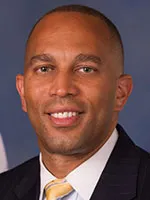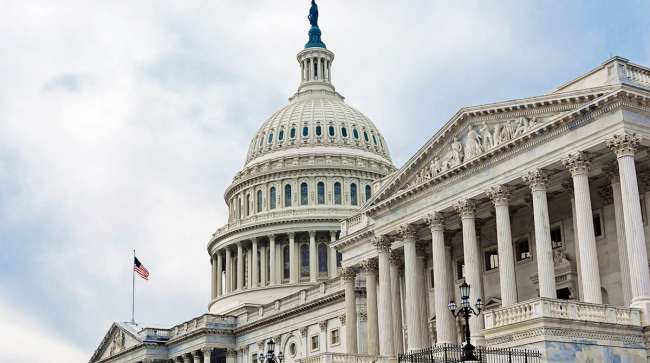Priorities for Republicans during the reconciliation legislative process include border security and immigration enforcement, and military defense weapons systems. (Mikhail Makarov/Getty Images)
WASHINGTON — As Congress resumes its legislative agenda the week of April 28, House and Senate Republicans intend to devote most of their efforts to finalizing a comprehensive budget package backed by President Donald Trump.
Over the next several weeks, policy congressional committees in both chambers will meet to debate details of a procedural reconciliation budget bill. GOP leadership said it is aiming to wrap up this tax and budget legislation by Memorial Day. Several policymakers suggest a completion date closer to the July Fourth recess is realistic.
Priorities for Republicans during the reconciliation legislative process include border security and immigration enforcement, military defense weapons systems, myriad social safety net programs, domestic energy initiatives, supply chain connectivity programs and extending the Trump-era 2017 tax cuts. Speaker Mike Johnson (R-La.) explained the current budget assignments for the committees will establish the “groundwork to extend the 2017 tax cuts and rein in wasteful spending so Americans can keep more of their hard-earned money.”
House Majority Leader Steve Scalise (R-La.), central to the upcoming negotiations on Capitol Hill, expressed confidence earlier this month in his caucus’ ability to continue to unify around Trump’s domestic tax and budget agenda.

Scalise
“This whole reconciliation process is a two-step process,” Scalise said. “You first have to pass the budget. We’ve now done that. The House and Senate had some minor differences. We got an agreement on those two and some really important commitments from the Senate so that now we’re both talking the same language, in essence, when we start the reconciliation process when we return from Easter.
“So we have a very aggressive time frame. We have 11 committees in the House that have been working for months … to be ready for this moment,” Scalise told Fox Business recently. “We’ve been talking with President Trump, going back over a year ago, where we’ve been laying out the foundation for how to keep tax rates low, how to produce more energy in America, which will be in this bill, how to fund the president’s border security measures, which will also be in this bill. Some other important things all in this one big, beautiful bill.”

Thune
On the Senate side, Majority Leader John Thune (R-S.D.) offered a similar legislative road map for the upper chamber when senators return to Washington from Easter break. Thune emphasized key priorities: “A tax bill — and border, energy and national security bill — to continue drafting.”
“Committees are currently working on legislation that will come to the floor in the coming weeks and months,” the Republican leader added.
The transportation panels, chaired by Republicans, plan to proceed with legislation to be included in the comprehensive reconciliation bill. They have yet to schedule legislative markups specific to the budgetary process. Congressional aides as well as experts familiar with the legislative calendar anticipate the panels to closely examine funding allocations for transit systems, Amtrak and certain climate-resilient infrastructure programs.
Reconciliation bills require simple majorities for passage in the House and Senate.

Schumer
Democrats governing in the minority continue to remain opposed to Trump’s domestic tax and budget agenda. Minority Leader Chuck Schumer (D-N.Y.) recently called on Republicans to explain how the budget blueprint “will impact the well-being of families from across the country.”
The New York senator further suggested, “This ‘one big, beautiful bill’ is increasingly becoming one big, enormous betrayal.”

Jeffries
House Minority Leader Hakeem Jeffries (D-N.Y.) agreed with Schumer’s viewpoint, telling ABC News this month, “We’re going to continue to press our case on the economy, continue to press our case on protecting and strengthening Social Security, which is what we are committed to do. Republicans are trying to detonate Social Security as we know it.”
Before the Easter recess, Congress adopted along party lines its comprehensive budget guidance resolution, a requisite for jump-starting committee markups and finalizing the reconciliation bill.
Trump has maintained support for the Republican-led Congress’ budget agenda. According to the White House on April 10, “If Congress doesn’t extend the Trump tax cuts, Americans will be stuck with the largest tax hike in history.”
Earlier this year, Deputy Chief of Staff Stephen Miller affirmed, “The president has great confidence in both chambers to deliver on his priorities.”






